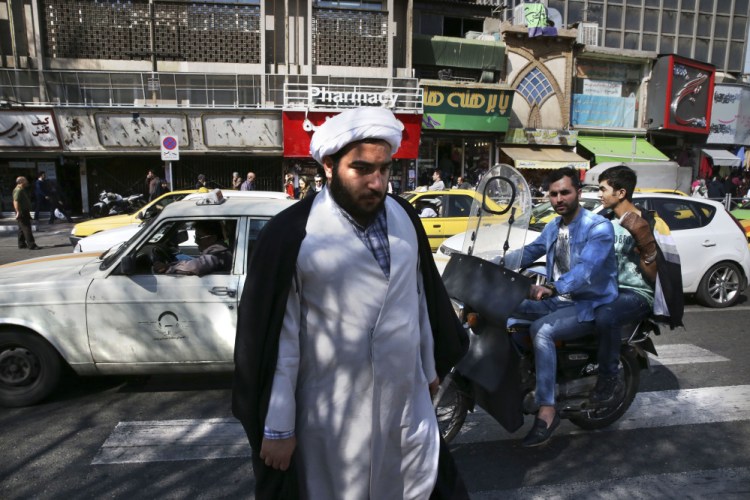TEHRAN, Iran – Preliminary results early Saturday morning showed reformist candidates heading for their best showing in more than a decade in Iranian parliamentary elections, according to local media and election officials counting the ballots.
Officials have yet to release early results, but reports in the semiofficial Fars and Mehr news agencies showed hard-liners losing ground in the 290-seat legislative body. None of Iran’s three main political camps — reformist, conservative and hard-line — was expected to capture a majority, but the reformist camp, which seeks greater democratic rights and better ties with the West, is expected to secure its strongest parliamentary presence since 2004.
A strong reformist showing would be a boost for moderate President Hassan Rouhani, who championed the newly implemented Iranian nuclear deal with world powers in the face of harsh hard-line opposition.
Nearly 55 million of Iran’s 80 million people were eligible to vote. Participation figures were not immediately available, though Interior Minister Abdolreza Rahmani Fazli predicted late Thursday there would be a turnout of 70 percent.
Friday’s election for Iran’s parliament and a powerful clerical body known as the Assembly of Experts was the first since last summer’s nuclear agreement was finalized, lifting international economic sanctions in exchange for Iran curbing its nuclear program.
Polls were closed at midnight and officials immediately began counting the ballots afterward. In the capital Tehran, officials counting the ballots at three different districts confirmed to The Associated Press that reformists were leading their hard-line rivals.
A substantial reformist bloc could herald a crucial shift in Iran’s internal politics. The hard-line camp is largely made up of loyalists of Rouhani’s predecessor, Mahmoud Ahmadinejad, who during his two terms in office avidly stoked tensions with the U.S. and cracked down on internal dissidents. Ahmadinejad also alienated large sectors of the conservative camp, leading some moderate conservatives to ally with reformists in this election in a bid to reduce the power of the hard-liners.
Reformists stormed to power with the 1997 election of President Mohammad Khatami, followed by 2000 parliamentary elections that brought a reformist majority to parliament for the first time. The movement pressed for an easing of Islamic social restrictions, wider freedom of expression and better ties to the international community.
But that hold was broken in the next election in 2004, when reformist candidates were largely barred from running. Ahmadinejad’s election victory in 2005 sealed the movement’s downfall. Since then reformists have been virtually shut out of politics for nearly a decade until Rouhani was elected.
Send questions/comments to the editors.



Success. Please wait for the page to reload. If the page does not reload within 5 seconds, please refresh the page.
Enter your email and password to access comments.
Hi, to comment on stories you must . This profile is in addition to your subscription and website login.
Already have a commenting profile? .
Invalid username/password.
Please check your email to confirm and complete your registration.
Only subscribers are eligible to post comments. Please subscribe or login first for digital access. Here’s why.
Use the form below to reset your password. When you've submitted your account email, we will send an email with a reset code.